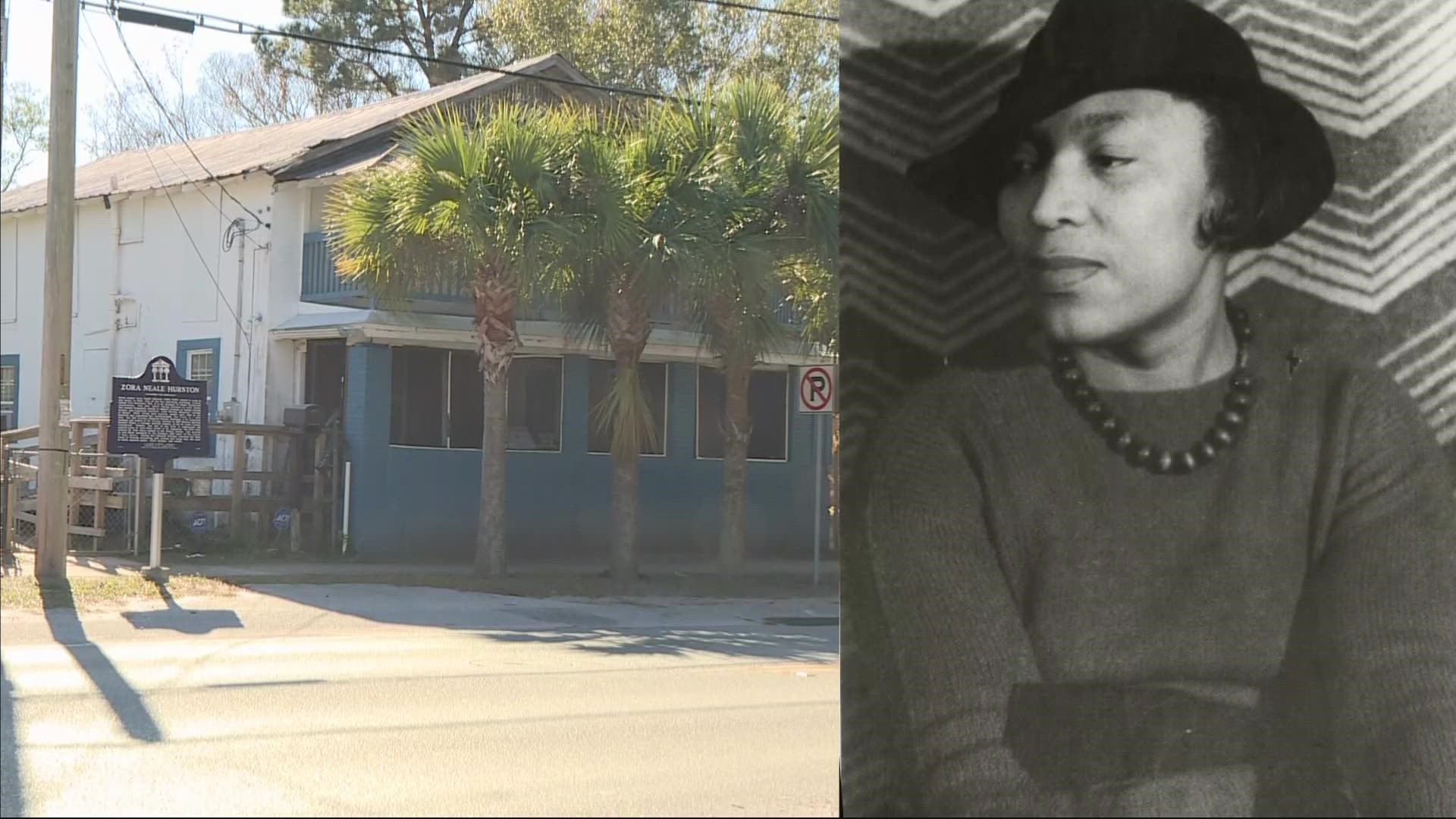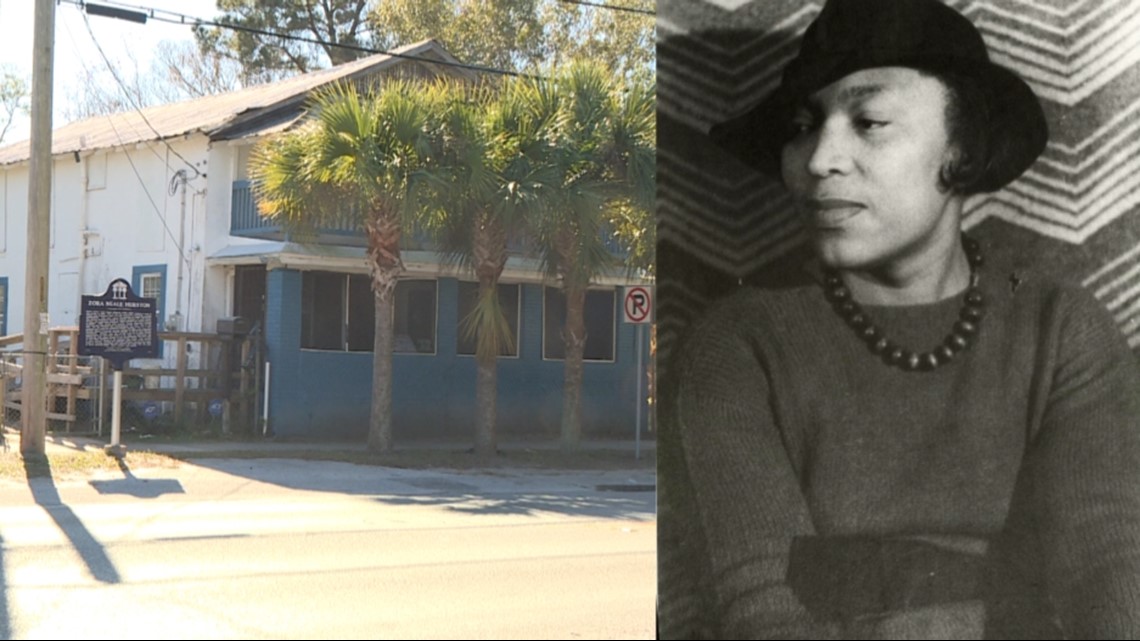This house needs to be included in a St. Augustine National Historical Park and National Seashore study by the National Park Service. Meanwhile, I have asked St. Johns County Growth Management Division to ask the Cultural Resources Review Board to place it on the CRRB watch list and a future agenda.
From Jessica Clark at First Coast News:
Author Zora Neale Hurston's St. Augustine home is for sale
ST. AUGUSTINE, Fla. — A legendary American author once called the First Coast home. Now, the St. Augustine house where Zora Neale Hurston lived is for sale.
Historians would love to see it saved from demolition.
"Zora Neale Hurston had been here (in St. Augustine) many times in her life," said Historian David Nolan. "She was married here in the 1920s."
Nolan said she also lived and worked in St. Augustine in the 1940s where she revised her autobiography Dust Tracks on a Road.
She worked on that book inside the room she rented in a house at 791 West King Street.
"This was the most successful book of her lifetime," Nolan noted. "It won her an award of the best book of race relations of the year."
That house, built in 1930, has a historical marker out front and a portrait of the prolific writer on the side of it. The asking price is $299,990.
Ms. Pasco was the last person to live in the home. She just passed away. She was 100-years-old, according to Nolan. Realtor Lavardis Anderson told First Coast News that Pasco's family is selling the house and the lot next to it, and that the family would love to see it preserved.
Nolan would too. "One way or another, I would like the house to be saved," Nolan said.
Anderson told First Coast News there is some interest by private buyers in turning the house into a museum. Anderson said he would support seeing the house saved by the community.
The two-story building is indeed a fixer-upper.
Noland nodded, "The people who lived in it did not have millions of dollars to spend on it. But the history that happened there can’t be reproduced. This is one of the very few still standing places in Florida where Zora Neale Hurston lived."
Turning the place into a tourist site could possibly boost West Augustine, an economically depressed area.
"Nowadays you can go to Key West and see Earnest Hemingway’s house. It's a museum," Nolan said. "You can go to Cross Creek and see Marjorie Rawlings' house, and I hope someday you can come to St. Augustine and see Zora Neale Hurston’s house."



I call St Augustine "The Flooded City." One good Category 5 hurricane with storm surge is all it will take to completely destroy it all. It's coming eventually. The old fort will still be here but nothing else. All that history will be history. In fact, as St. Augustine was the first established city in US history, I predict that it will also be the first to disappear. Sea level rise combined with increases in the frequency and intensity of hurricanes will see the city uninhabitable in at least 500 years. Unlike other US cities further inland, in 1000 years, it will not exist at all. Talk about building your house on sand! People's whole family history in jeopardy if they live here. It's a historical dead end.
ReplyDeleteYeah pissing in the wind, entertaining yourself, and wasting time with the preservation. Gonna need dive equipment eventually to view what you're trying to preserve. Can these structures withstand being under salt water? How long? Quite possible in only 200 years downtown will be submerged. 500 years from now definitely everything would have to be on 20 foot stilts to avoid being fully submerged, and even then still gonna have to withstand the storm surge. Maybe in the future there will be St Augustine 2.0, 3.0, 4.0 etc further and further inland. By then they'll have figured out that anything that they want to REALISTICALLY preserve must have float capability. Modern "floating history." Old Fort will soon need to be excavated en whole and transported further inland to the tune of hundreds of millions...or they could always make it a diving attraction. Like the Lost City of Atlantis.. the Lost City of St Augustine.
ReplyDelete